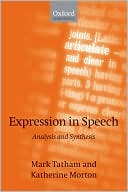Category Books
- Fiction Books & Literature
- Graphic Novels
- Horror
- Mystery & Crime
- Poetry
- Romance Books
- Science Fiction & Fantasy
- Thrillers
- Westerns
- Ages 0-2
- Ages 3-5
- Ages 6-8
- Ages 9-12
- Teens
- Children's Books
- African Americans
- Antiques & Collectibles
- Art, Architecture & Photography
- Bibles & Bible Studies
- Biography
- Business Books
- Christianity
- Computer Books & Technology Books
- Cookbooks, Food & Wine
- Crafts & Hobbies Books
- Education & Teaching
- Engineering
- Entertainment
- Foreign Languages
- Game Books
- Gay & Lesbian
- Health Books, Diet & Fitness Books
- History
- Home & Garden
- Humor Books
- Judaism & Judaica
- Law
- Medical Books
- New Age & Spirituality
- Nonfiction
- Parenting & Family
- Pets
- Philosophy
- Political Books & Current Events Books
- Psychology & Psychotherapy
- Reference
- Religion Books
- Science & Nature
- Self Improvement
- Sex & Relationships
- Social Sciences
- Sports & Adventure
- Study Guides & Test Prep
- Travel
- True Crime
- Weddings
- Women's Studies
Expression in Speech: Analysis and Synthesis »

Authors: Mark Tatham, Katherine Morton
ISBN-13: 9780199208777, ISBN-10: 0199208778
Format: Paperback
Publisher: Oxford University Press, USA
Date Published: November 2006
Edition: (Non-applicable)
Author Biography: Mark Tatham
Mark Tatham is Professor in the Department of Language and Linguistics at the University of Essex. He researches the theory of the production and perception of speech within the general theory of linguistics. He has taught phonology, computational modelling, and speech aspects of neuro-psychology at the University of California and the University of Ohio.
Katherine Morton is a Fellow in the Department of Language and Linguistics at the University of Essex. She has published research in modelling speech production and perception within the overall framework of human communication, constrained by linguistic theory. She has taught experimental linguistics/phonetics at the University of Cambridge and the University of California.
Book Synopsis
All human speech has expression. It is part of the 'humanness' of speech, and is a quality listeners expect to find. Without expression, speech sounds lifeless and artificial. Remove expression, and what's left is the bare bones of the intended message, but none of the feelings which surround the message. The purpose of this book is to present research examining expressive content in speech with a view to simulating expression in computer speech. Human beings communicate expressively with each other in conversation: now in the computer age there is a perceived need for machines to communicate expressively with humans in dialogue.
Doody Review Services
Reviewer:Tamara Stone, MS, CCC-SLP(Communication Consultations)
Description:This book explores expression in speech as a component of communication, reviewing current research and proposing potential research ideas to be completed in this area.
Purpose:The authors work to propose a system of analyzing speech expression from "planning stage followed by a rendering stage." The research communities in speech and language sciences and linguistics will find themselves called to continue this work. Mark Tathan and Katherine Morton have completed a thoughtful compilation laying out the groundwork for future research efforts in this area.
Audience:A well written, scholarly voice on the subject, the book is written for research communities interested in the components of speech expression.
Features:It covers the current research in expression and prosody of speech, and proposes further research in the field. This volume does a wonderful job of thoroughly describing speech affect and the interdependence of the speaker and listener in the process of creating speech expression. They remind us of the inability due to human nature to speak in the total absence of expressive tone. The writers explain their proposal to break down speech expression to be interpreted and reproduced by synthesizer.
Assessment:This book offers communication experts ideas and hypotheses in the area of speech expression. It is well organized and sets up researchers for taking the next steps in this area.
Table of Contents
| Acknowledgements | ||
| Introduction | 1 | |
| Pt. I | Expression in Speech | |
| Ch. 1 | Natural Speech | 11 |
| Ch. 2 | Speech Synthesis | 28 |
| Ch. 3 | Expression in Natural Speech | 37 |
| Ch. 4 | Expression in Synthetic Speech | 65 |
| Ch. 5 | The Perception of Expression | 86 |
| Pt. II | Transferring Natural Expression to Synthesis | |
| Ch. 6 | The State of the Art | 97 |
| Ch. 7 | Emotion in Speech Synthesis | 124 |
| Ch. 8 | Recent Developments in Synthesis Models | 150 |
| Pt. III | Expression and Emotion: The Research | |
| Ch. 9 | The Biology and Psychology Perspectives | 167 |
| Ch. 10 | The Linguistics, Phonology, and Phonetics Perspective | 198 |
| Ch. 11 | The Speech Technology Perspective | 236 |
| Ch. 12 | The Influence of Emotion Studies | 264 |
| Pt. IV | Development of an Integrated Model of Expression | |
| Ch. 13 | The Beginnings of a Generalized Model of Expression | 289 |
| Ch. 14 | All Speech is Expression-Based | 300 |
| Ch. 15 | Expressive Synthesis: The Longer Term | 327 |
| Ch. 16 | A Model of Speech Production Based on Expression and Prosody | 355 |
| Conclusion | 389 | |
| References | 393 | |
| Bibliography | 411 | |
| Author index | 413 | |
| Subject index | 417 |
Subjects
 Robotics & Artificial Intelligence
Robotics & Artificial Intelligence  Natural Language Processing & Speech Recognition / Synthesis
Natural Language Processing & Speech Recognition / SynthesisNonfiction
 Philosophy
Philosophy  Linguistics & Semiotics
Linguistics & SemioticsPhilosophy
 Linguistics & Semiotics
Linguistics & Semiotics  Psycholinguistics & Language Acquisition
Psycholinguistics & Language AcquisitionReference
 English-language Reference
English-language Reference  Speech
SpeechNonfiction
 Reference
Reference  English-language Reference
English-language Reference
